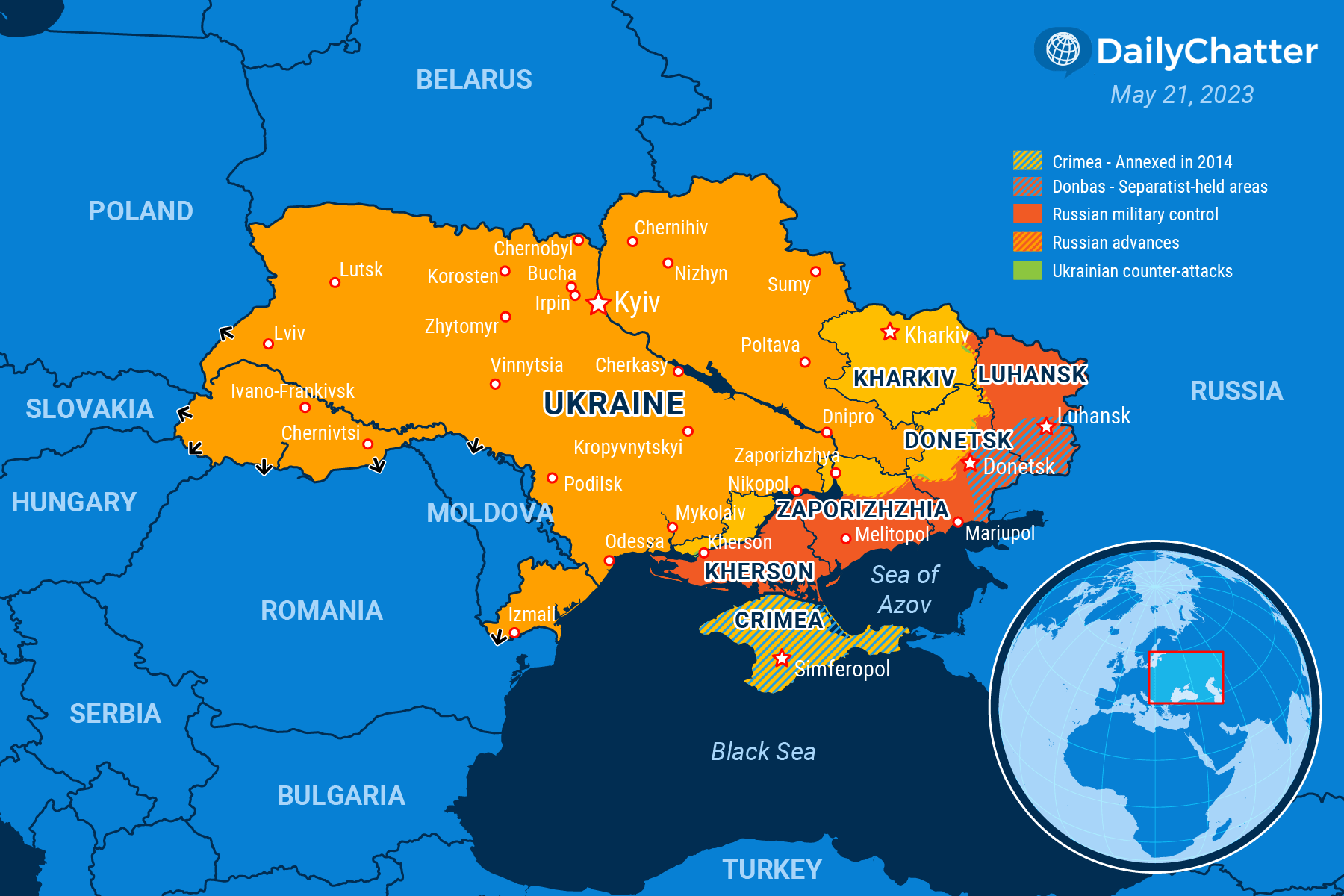Ukraine Briefly
October 06, 2023Ukraine, Briefly
RussiaUkraine

|
Listen to Today's Edition
|
This week, the European Union reaffirmed its commitment to supporting Ukraine in its struggle against Russia’s invasion, as schisms over the issue continued to grow in the United States and Europe, Al Jazeera reported. A delegation of EU foreign ministers visited Kyiv and expressed unity in their support for Ukraine. Ukrainian President Volodymyr Zelenskyy stressed that the duration of the war depends on the quality and quantity of support from allies. However, signs of fractured support are emerging in both the US and Europe, with some conservatives in the US opposing assistance, and some EU countries becoming more critical of supporting Ukraine.
Also, this week:
- Russia has no plans for any additional troop mobilization in Ukraine, according to Defense Minister Sergei Shoigu, with more than 335,000 individuals enlisting in the armed forces or volunteer units this year, Reuters wrote. Shoigu said more than 50,000 recruits signed contracts in September alone, including former Wagner Group mercenaries joining voluntary formations. At least 51 people including a six-year-old boy were killed in a Russian missile strike on Hroza, a village southeast of Kharkiv, just after midday Thursday, the BBC reported. Many were attending a wake for a local resident when the missile struck, in an area that the defense ministry said had no military targets. The village is in the Kupyansk district, the scene of heavy fighting since the invasion and recaptured last September by Ukraine. Zelenskyy denounced the attack as a “brutal Russian crime” as part of the latter’s efforts to make its “genocidal aggression a new norm for the whole world.”
- Armenia’s parliament ratified the statute of the International Criminal Court (ICC), allowing itself to come under the Netherlands-based court’s jurisdiction, the Guardian noted. This decision carries implications for Armenia’s relationship with Russia: It opens the possibility of Yerevan arresting Russian President Vladimir Putin if he enters the country because of an ICC arrest warrant. The ratification is primarily in response to alleged war crimes committed by Azerbaijan and is not specifically targeted at Russia, however. Even so, relations between the two countries have become strained as a result of Russia’s involvement in Ukraine and its perceived inaction during the recent Nagorno-Karabakh conflict, when Azerbaijan regained control of the region.
- United Nations investigators have verified six more cases of Russian executions of Ukrainian prisoners of war in the year following Russia’s invasion, according to the New York Times. These cases add to the 15 Russian executions of Ukrainian soldiers documented in a previous UN report in March. The earlier report also found that Ukrainian forces had executed 25 Russian prisoners of war, but the new report does not document any additional cases on the Ukrainian side. These findings suggest possible violations of the Geneva Convention, which mandates the humane treatment of prisoners of war.
- Slovakia accused Russia this week of interfering in the country’s recent elections won by populist Robert Fico, who pledged to end military aid to Ukraine, Agence France-Presse reported. This accusation follows Moscow’s foreign intelligence service director’s pre-election remarks claiming that Slovakia’s pro-Ukraine centrist party were “US proxies.” While Moscow rejected these claims, Slovakia summoned a Russian embassy official and called on Moscow to “stop disinformation activities.” Fico’s election has raised concerns about support for Kyiv from Western states: The new leader had vowed to cut off military aid to Ukraine and has called for closer ties with Russia.
- Soccer’s global governing body FIFA lifted its blanket ban on Russian football teams competing in international tournaments, allowing the Russian youth teams to participate in the men’s and women’s under-17 World Cup tournaments, Politico reported. The ban had been imposed in February 2022 in response to Russia’s invasion of Ukraine. This decision follows a similar move by UEFA, the European soccer governing body, which faced a backlash from several countries refusing to play against Russian teams despite UEFA’s ruling. FIFA’s decision comes with conditions, including Russian teams playing under the name “Football Union of Russia” and not displaying their national flag, anthem, or colors at matches. FIFA also reiterated its condemnation of Russia’s war on Ukraine.
Not already a subscriber?
If you would like to receive DailyChatter directly to your inbox each morning, subscribe below with a free two-week trial.
Support journalism that’s independent, non-partisan, and fair.
If you are a student or faculty with a valid school email, you can sign up for a FREE student subscription or faculty subscription.
Questions? Write to us at hello@dailychatter.com.

